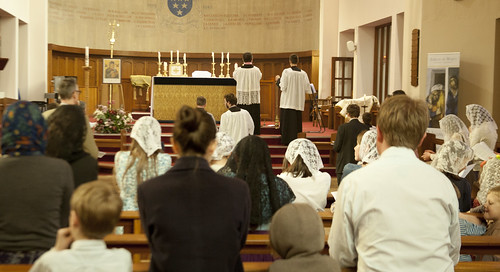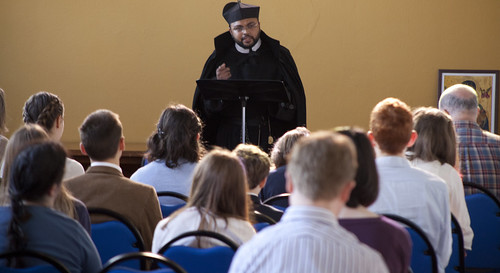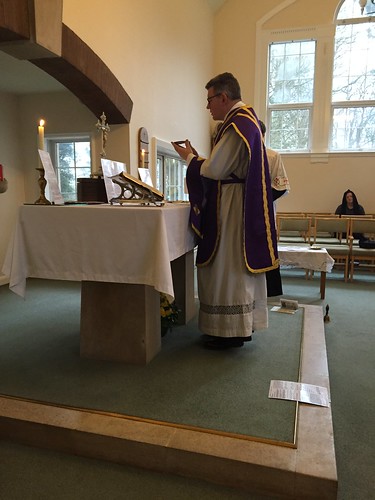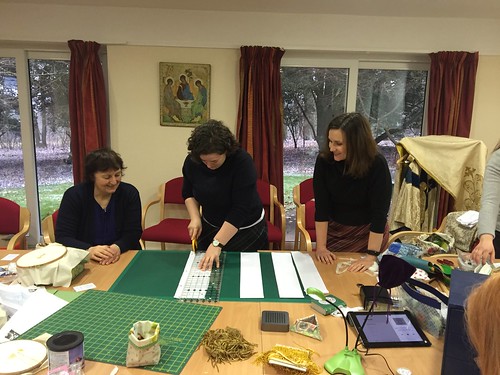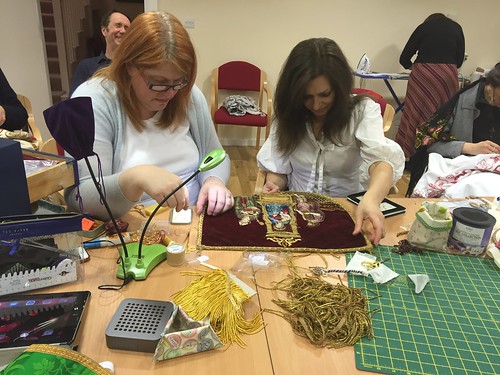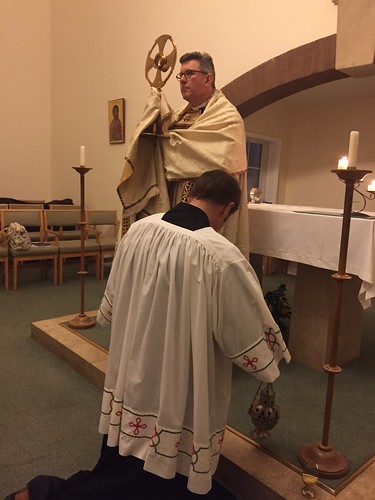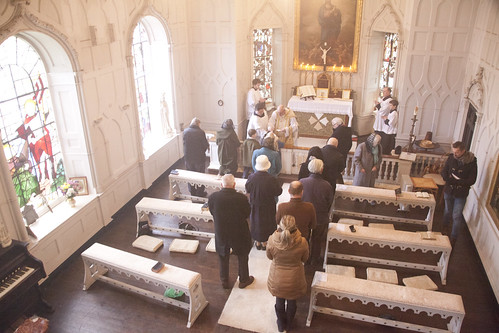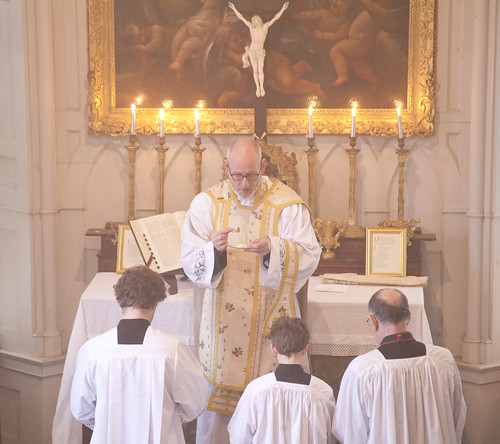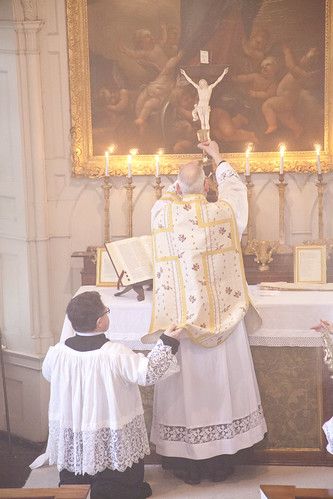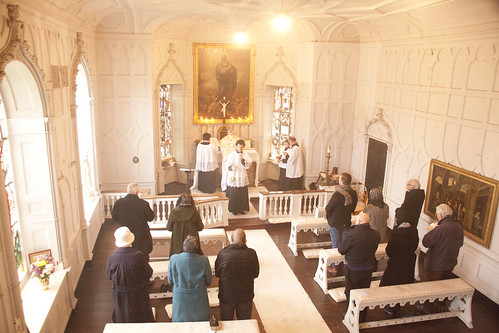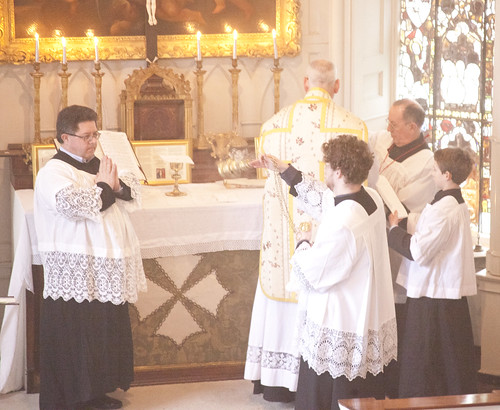Chairman's Blog
Pilgrimage to Caversham and the Ember Saturday: 11th March
Support the work of the LMS by becoming an 'Anniversary Supporter'.
The Narrative of Victimhood: Transsexuality
This is from a few months ago on my Philosophy blog. Recent flurries of activity on social media prompt me to offer it to a wider audience.
----------------
I've just noted on my other blog that living as a transsexual has been categorised by the Congregation for the Doctrine of the Faith as incompatible with the Faith. This is about the argument in favour of tolerating or promoting this lifestyle.
The transsexual phenomenon is not entirely new, but it is taking on a new form and become a cause celebre with astonishing speed. From a common-sense point of view it seems sheer lunacy: people can now simply claim to be the sex opposite to that indicated by their biology, and have this assertion officially recognised, with or without any medical diagnosis or intervention (not that either would make any real difference).
Support the work of the LMS by becoming an 'Anniversary Supporter'.
New book on the Faith and the New Age
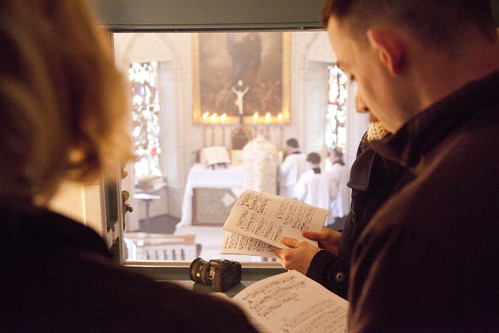 |
| View from the choir loft: Milton Manor, Latin Mass Society annual Mass |
I've discussed Roger Buck's earlier book, The Gentle Traditionalist, here.
Support the work of the LMS by becoming an 'Anniversary Supporter'.
A smaller, weaker, impurer Church
Reposted from December 2015, since that Ratzinger passage is once more doing the rounds on Facebook.
| ------------------------------------------------------------------------------------------------------------ |
| An international pilgrimage: the traditional pilgrimage from Paris to Chartres. |
From time to time people like to quote something Joseph Ratzinger wrote in 1969. Here's the key passage (source):
The church will become small and will have to start afresh more or less from the beginning.
And so it seems certain to me that the Church is facing very hard times. The real crisis has scarcely begun. We will have to count on terrific upheavals. But I am equally certain about what will remain at the end: not the Church of the political cult, which is dead already, but the Church of faith. She may well no longer be the dominant social power to the extent that she was until recently; but she will enjoy a fresh blossoming and be seen as man’s home, where he will find life and hope beyond death.
I always like to oppose signs of false optimism, so I'll say something about this.
In relation to Cardinal Ratzinger/ Pope Benedict, this passage has to be read in light of his intellectual development. In 1969 he didn't have the same views as he did when he became a cardinal in 1993 or Pope in 2005. He might or might not have later actually disagreed with this passage, but his writings certainly took on a very different tone and emphasis. To put it crudely, he was a bit of a liberal in 1969. It is to his credit that he had the flexibility of mind and intellectual honesty to continue developing his thinking, in light of new research and the unfolding of events, as the decades passed.
 |
| An association of Chant choirs: the Gregorian Chant Network. |
The reference to the 'Church of the political cult' is an example of liberal thinking and language. It is a disparaging reference to the role of the Church in society and politics, particularly in Catholic countries, in the old days. The loss of 'privileges' and 'edifices' noted in the passage was not, it should be noted, something which liberals saw with regret. They consciously and actively repudiated the Church's privileged place in society, which she had had in 19th century Spain, Second Empire France, and the like. They thought that political privileges and elaborate institutions made the Church worldly (in need of 'spiritualisation'), made her look arrogant in relation to other religions, and needed to be set aside for the sake of more effective evangelisation.
In light of this, at the time widely held, view, the passage makes a very different kind of sense to that sometimes, I think, attributed to it by conservative Pope Benedict fans. To a large extent it is not about the disaster of post-Conciliar collapse - which wasn't so visible in 1969 - as about the liberal hope for purification and growth following the sloughing off of the privileges and institutions which were cramping the work of the Holy Spirit. Of course, the two things are closely related. When Pope Paul VI talked about the 'autodemolition' of the Church, he was talking about the way that liberals were deliberately and joyfully smashing the place up, convinced that this would lead to a new springtime. The liberal attitude has not gone away entirely. Even now, bishops planning for the institutional disappearance of the Church in their dioceses give their discussion documents jaunty and optimistic titles like 'Leaving Safe Habours'. Only if we leave all those fusty old things like schools, hospitals, and parish churches, behind, can we really get going with our evagelisation. Hanging on to the old institutions is playing it too safe. If smashing up half of them didn't have a positive effect, then we should try smashing up the remaining half.
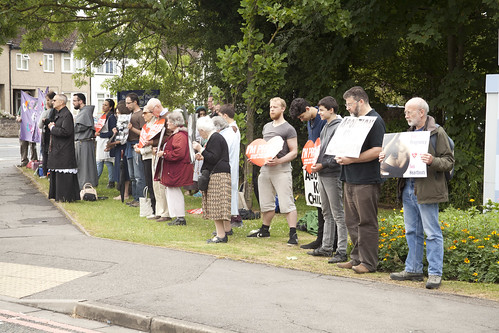 |
| A pro-life witness: outside the John Radcliffe Hospital, in Oxford. |
Pope Paul VI wasn't so sure this was a good idea, as the reference to 'autodemolition' in his famous, but somewhat mysterious, 1965 sermon indicated. What we have seen since then is the very effective destruction of the Church's institutions and place in society, but absolutely no sign of 'purification' or a 'great power' flowing out: quite the contrary. One reason is that secularised, formerly Catholic institutions don't always leave the Church's institutional orbit. For example, the completely secularised 'Marriage Care' counselling service of the UK, whose philosophy is radically opposed to the teaching of the Church, still gets a privileged place in the Church, in advising bishops, on parish noticeboards, in terms of references in Catholic newspapers, and in Catholic directories. The same is true of the Catholic school system. Such secularised institutions bring completely worldly thinking into the heart of the Church.
There lies at the centre of the liberal project a confusion about the Church's engagement with the world. In the old, confessional Catholic state, and to an extent in non-Catholic countries like the UK where there were well-developed Catholic institutions, the Church used to engage very closely with the world, but on her own terms. There were Catholic schools, hospitals, prison-visiting charities, and all sorts of professional associations, all with a genuine Catholic ethos. A slackening of that ethos would lead either to intervention and reform or repudiation. That was the way that a (relatively) pure Church made herself known to a perhaps hostile world. This manifestation made it possible for non-Catholics to recognise the Church's unique character, and what she had to offer, in even quite brief encounters with Catholic institutions. Non-Catholics who had experienced a Catholic hospital, or who had wandered into a Catholic church during Mass, came away with something to reflect about. When Malcolm Muggeridge decided to send his son to a preconciliar Downside School, the headmaster warned him that the boy was very likely to ask to be received into the Church: most non-Catholic pupils did, he said. And so it came to pass.
The liberal conception of engagement, by contrast, is exemplified by the fictional Pope Kirill in the film, The Shoes of the Fisherman (a 1968 film of a 1963 book), going off to mediate between Russia and China in a business suit, explaining that if you look like the people you are talking to, they are more likely to listen. The idea is that by making concessions (supposedly only concessions on outward, disciplinary, non-doctrinal matters) the Church can 'gain a hearing' with the world. The result has been, however, that there is nothing for the world to hear. Catholic schools, hospitals, and even liturgies have become next to useless as means of conveying anything about the truth of the Catholic religion, the Church's insight into human nature, or the supernatural virtues which the Church makes possible, to non-Catholics, or even to Catholics, because they have deliberately made themselves worldly.
And so it is that liberals criticise the old institutions of the confessional state for sitting down with secular leaders to negotiate privileges, like the opportunity for religious to catechise Catholic children at French state schools during the school day, state support for Catholic hospitals or leper colonies, or having crucifixes in courtrooms, because this kind of thing led to the Church becoming 'worldly', and even to the Church making concessions such as allowing state influence over the appointment of bishops. Instead, they propose that the Church sit down with secular leaders to evangelise them, having first made the evangelists themselves as worldly as possible. As a matter of fact, the Church continues to spend a huge amount of time and energy negotiating over Catholic education and the like - the column inches in the Catholic press on the subject of free transport for children at Catholic schools must surely exceed those on all matters of bioethics combined - though with a weaker bargaining position than before. Meanwhile, the appointment of a bishop unacceptable to the secular power is about as likely as snow in Hell. How this is supposed to represent progress, I am unable to explain.
What Joseph Ratzinger was certainly right about in 1969 was that the new situation would absorb much energy in introspection, and would lead to a crisis which would take many years to resolve. Where he was wrong is in the idea that the Church can evangelise without institutions, 'edifices', relying instead on individuals. Catholicism is an incarnate religion, and the Church is herself a human, as well as a divine, institution. Wherever Catholics set up shop they create institutions: first the family and the parish and diocese, and then schools and associations of all kinds. It is through human contact that the Gospel is spread, and institutions can manifest the Church, humanly, more effectively, convincingly, and consistently, than isolated individuals. We are inviting non-Catholics to join an institution, after all, and not simply become a personal friend. If the Church is to recover her evangelical zeal, she must rebuild her institutions, just as she did after the French Revolution and the English Reformation.
As you build new Catholic institutions, the key thing is not to let the liberals get their hands on them: they will instinctively destroy them. They can't help it. It is their nature.
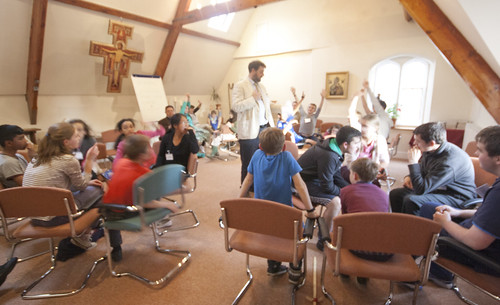 |
| A Summer School: St Catherine's Trust |
Support the work of the LMS by becoming an 'Anniversary Supporter'.
Easter Cards from the Latin Mass Society
This year, for the first time, the Latin Mass Society is selling Easter Cards. Make this part of your preparations for the the greatest feast of the Church's year!
Pack of 6 cards for £3.99; make sure you are logged in to the website for your member's discount.
Support the work of the LMS by becoming an 'Anniversary Supporter'.
Juventutem Mass in London 24th Feb
7:30pm Friday 24 Feb: Mass will be celebrated by Fr Armand de Malleray FSSP.
Music by Cantus Magnus directed by Matthew Schellhorn:
Messa da Capella a quattro voci Monteverdi
Sicut cervus Palestrina
Sitivit anima mea Palestrina
Support the work of the LMS by becoming an 'Anniversary Supporter'.
A pre-history of the Guild of St Clare

It seems the Guild of St Clare has a pre-history: there existed, up to about the time of Vatican II, a 'St Clare's Guild' for sewing in Catholic parishes in the United States. I'd be interested to hear more about this Guild from those who have any information.
On a regular basis, the Guild would meet to sew what I recall were "pads for cancer patients". There may have been other projects that they worked on, but I recall that one. As to the spirituality of the group, I have no clue, nor whether it was promoted by my parish (Nativity of Our Lord) or the Archdiocese of St Paul Minnesota.
What I recall was a large number of women gathering at the house on an occasional basis and hand sewing. My Mother would refer to it as the St. Clare Guild, and she participated in it probably until 1960 or so. That was a time, of course, when many women did not work outside the house but would involve themselves in charitable work.
There was quite a bit of adult catechesis at the time as well. My Mother also belonged to a parish sponsored "women's discussion club". There were many such discussion clubs set up by my parish on a neighborhood basis. Members were asked to read chapters of books written by Catholic authors (it was the time of Venerable Bishop Fulton Sheen) and gather to discuss what they had read.
In addition to the women's discussion club, there were discussion clubs for couples and both of my parents participated in the one for our neighborhood.
Comment: Any group of skilled ladies doing vestment repairs would have suffered the same fate as groups of skilled singers: under the new dispensation they were no longer needed, or only for things which would not have motivated them to hang around. The new spirituality did for any groups based on spiritual matters.
St Catherine's Trust Family Retreat: 31st March to 2nd April
The Family Retreat is back in the Oratory School near Reading this year, for Passion Sunday weenkend (the weekend before Palm Sunday), led by Fr Serafino Lanzetta of the Gosport friars. Details and booking here.
The Family Retreat, run by the St Catherine's Trust, is designed to make it possible for the parents of small children to attend a retreat without leaving their children behind. We arrange activities for the children during the spiritual conferences. Everyone is welcome, however: you don't have to bring children with you!
The Oratory School is a lovely setting for the Retreat, with two chapels and extensive and beautiful grounds. Last year we used Ratcliffe College near Leicester, as the Oratory School wasn't available.
The Retreat runs alongside the GCN Chant Training Weekend so the chant singers accompany our liturgies: Mass, Benediction, Vespers, and so on.
For some years now we have been using different Retreat givers each year; last year we had two priests of the Sons of the Most Holy Redeemer, from Papa Stronsay.
The Latin Mass Society provides bursaries which HALVE the cost to families who would not otherwise be able to come.
It is a great event, do join us!
Support the work of the LMS by becoming an 'Anniversary Supporter'.
Guild of St Clare Sewing Retreat: report
I've pinched some of the photos; the Guild has a short report on their blog.
"Our first ever sewing retreat finished yesterday, and I for one enjoyed myself enormously. With snow falling outside over the panoramic views of Oxfordshire countryside, an infinite supply of tea and biscuits and good company, what could be more agreeable than a weekend of sewing punctuated by traditional liturgy?"
Support the work of the LMS by becoming an 'Anniversary Supporter'.
Mass in Milton Manor: photos
Fr Philip Harris celebrated a Missa Cantata in the lovely private chapel at Milton Manor House for the Latin Mass Society yesterday. The Schola Abelis accompanied Mass for the Apparition of the Immaculate Conception with chant.
Support the work of the LMS by becoming an 'Anniversary Supporter'.








